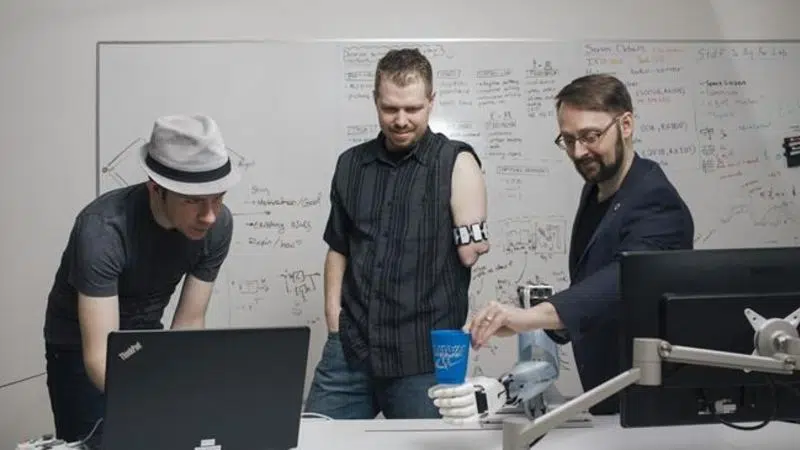
From bionic arms to predicting patient surges in ER, AI is reshaping patient care
TORONTO — Chris Neilson is on his second prosthetic after losing his left arm above the elbow in a nasty work accident about six years ago. Partly myoelectric, the artificial hand and arm is a step up cosmetically and functionally from the first body-controlled device that featured a hook and claw.
But the 33-year-old mining industry worker is looking ahead, helping researchers at the University of Alberta test a new generation of prosthetic — an experimental bionic arm that can “learn” to adapt and anticipate an amputee’s movements, employing the power of artificial intelligence.
It’s just one example of how AI, or more specifically machine learning, is beginning to transform health care, propelling what was once the stuff of science fiction solidly into the realm of reality.


